Fractions Worksheets for Ages 6-9
19 filtered results
-
From - To
Explore our engaging Fractions Worksheets designed specifically for children ages 6-9. These worksheets help young learners grasp the essential concepts of fractions through fun activities tailored to their developmental needs. With vibrant visuals and relatable examples, kids will enjoy practicing shading, recognizing, comparing, and simplifying fractions. Our resources promote a hands-on approach, making math both enjoyable and educational. Whether at home or in the classroom, these worksheets provide the perfect support for early mathematical understanding. Download now and watch your child build confidence in their fraction skills while having fun! Perfect for teachers and parents alike!
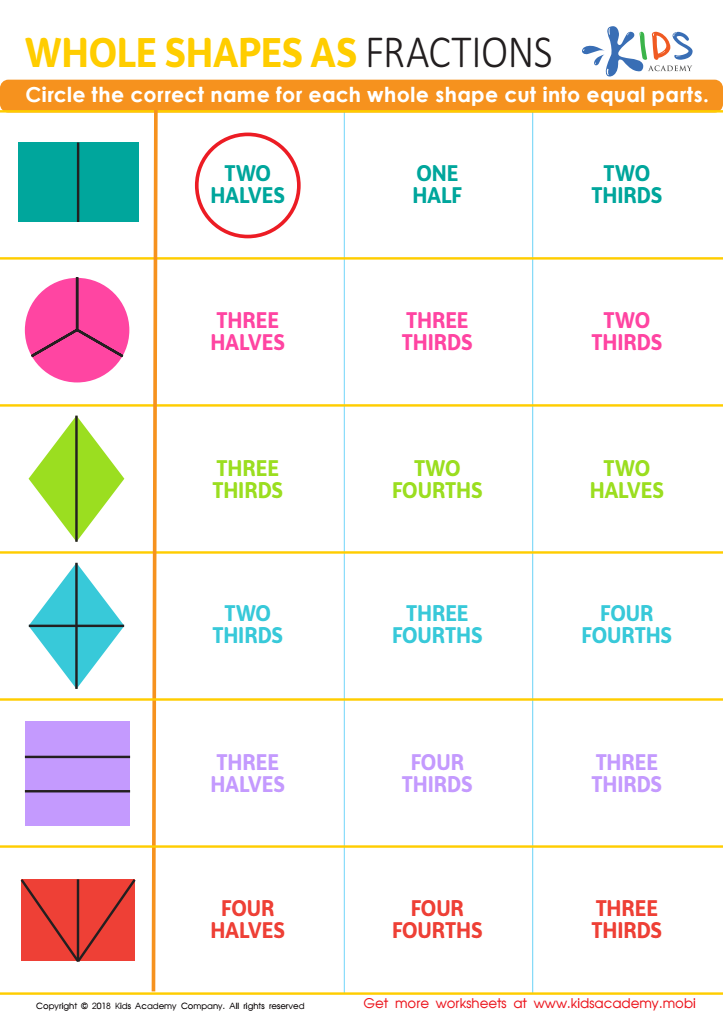

Whole Shapes as Fractions Worksheet
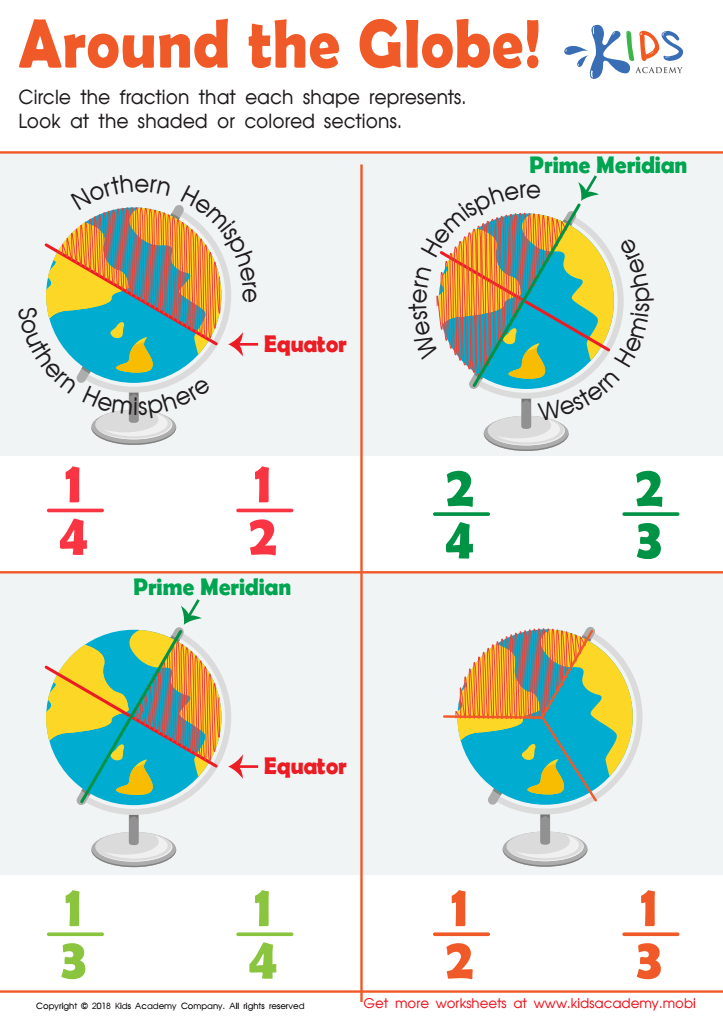

Around the Globe Worksheet
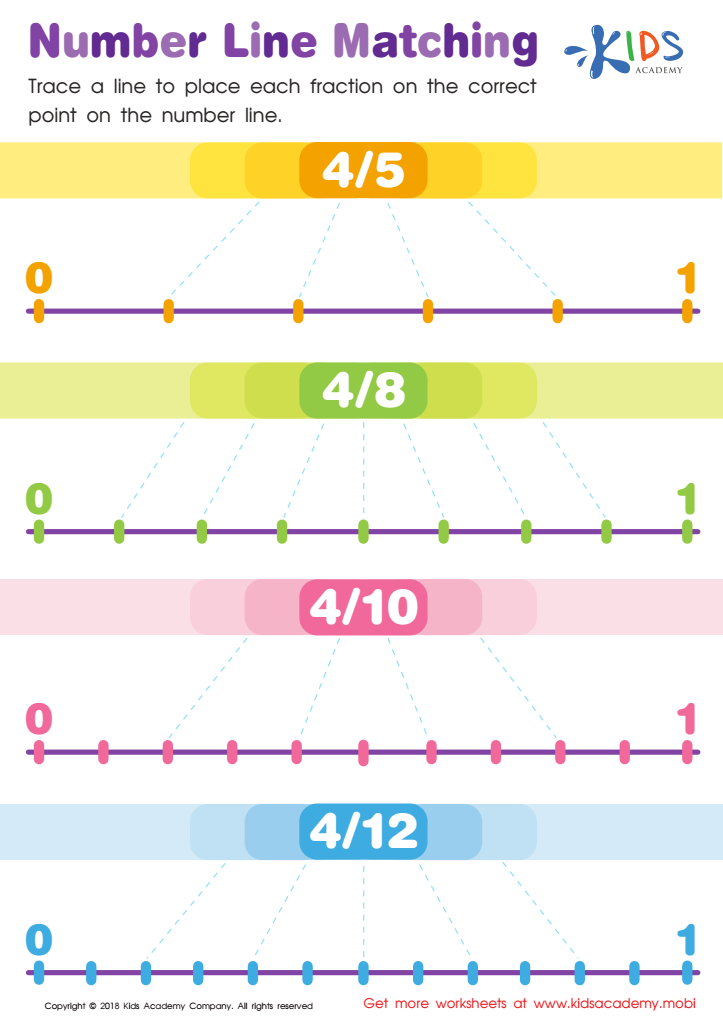

Number Line Matching Worksheet
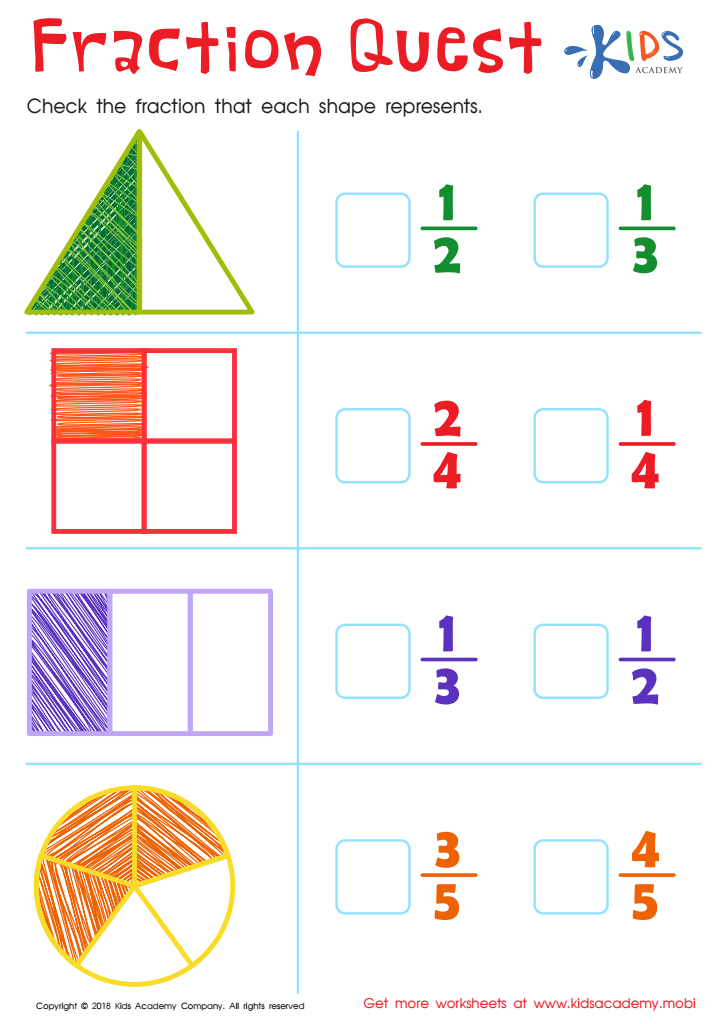

Fraction Quest Worksheet
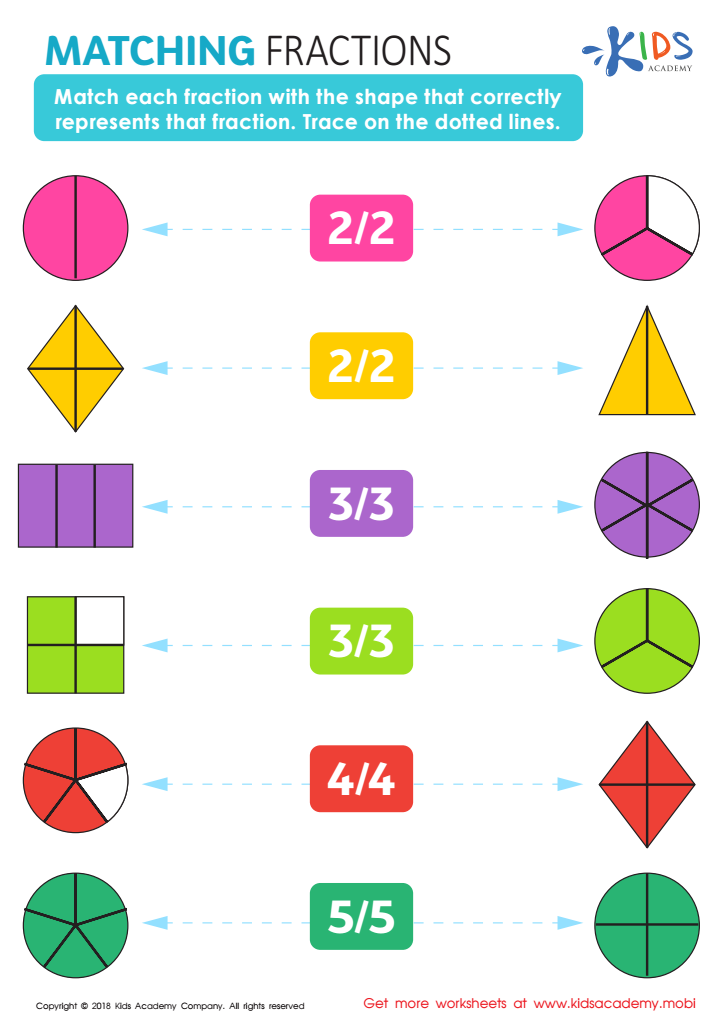

Matching Fractions Worksheet
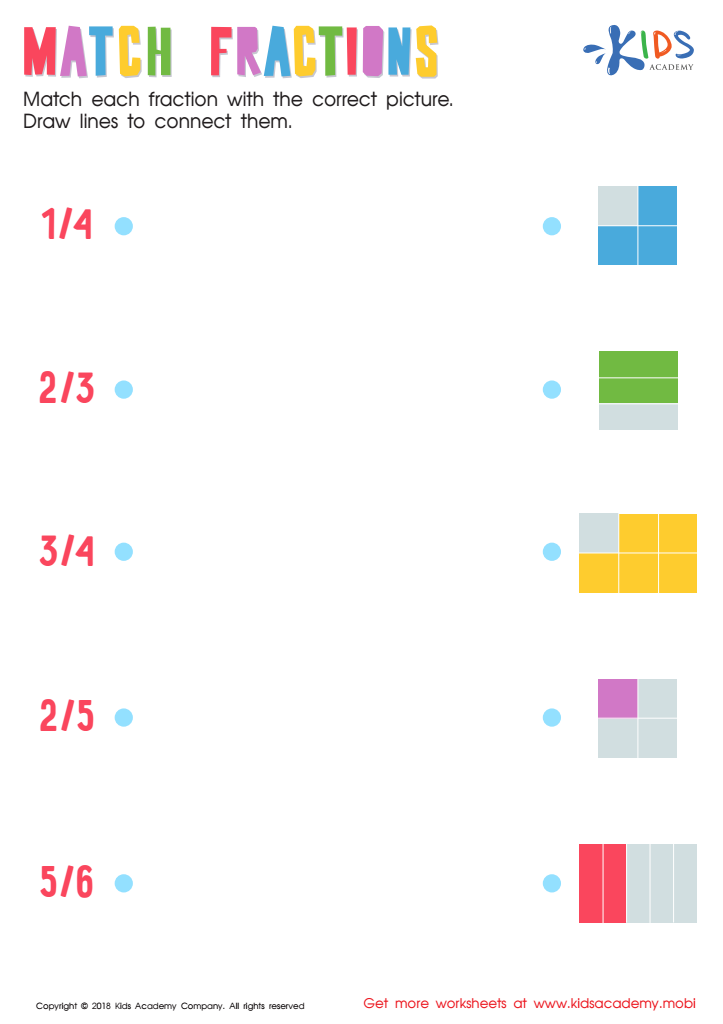

Match Fractions Worksheet
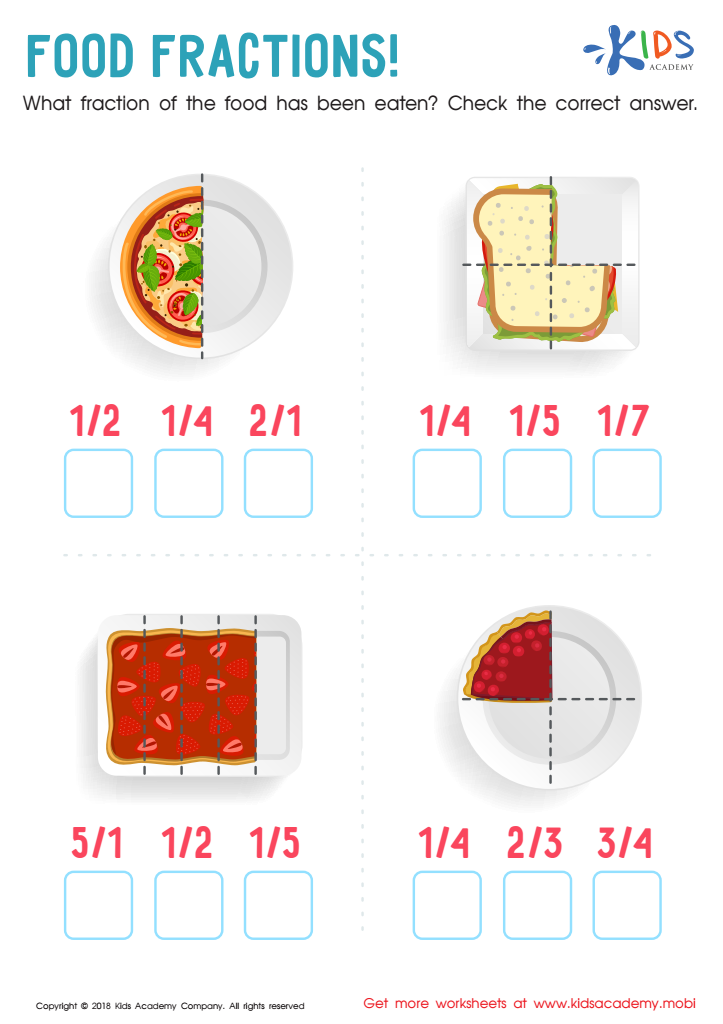

Food Fractions Worksheet
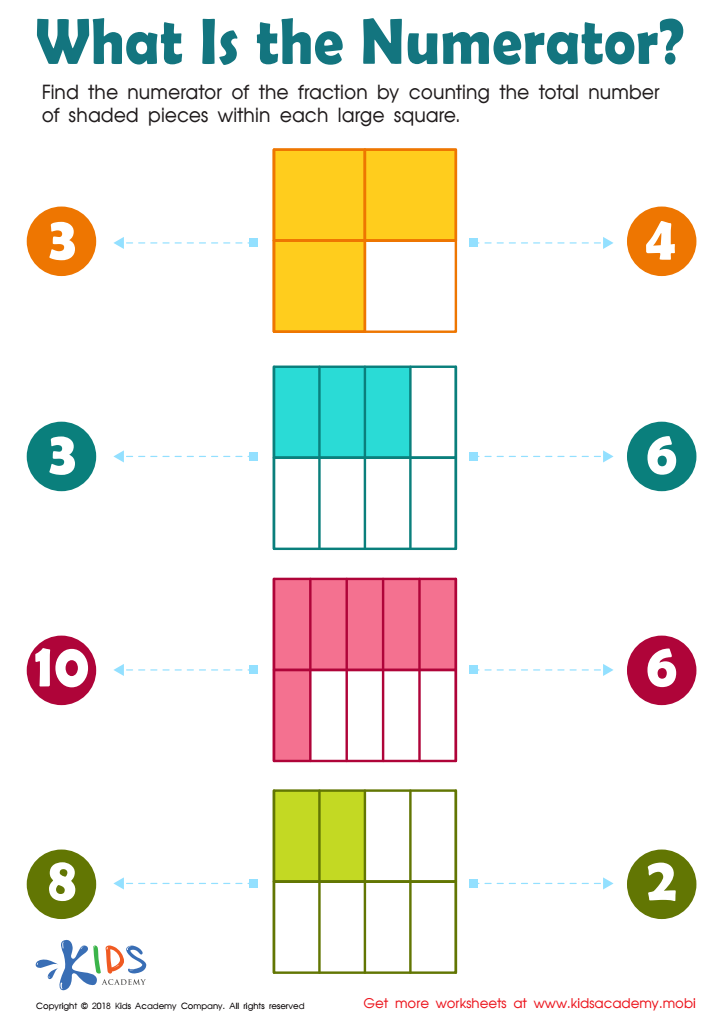

What Is the Numerator? Worksheet
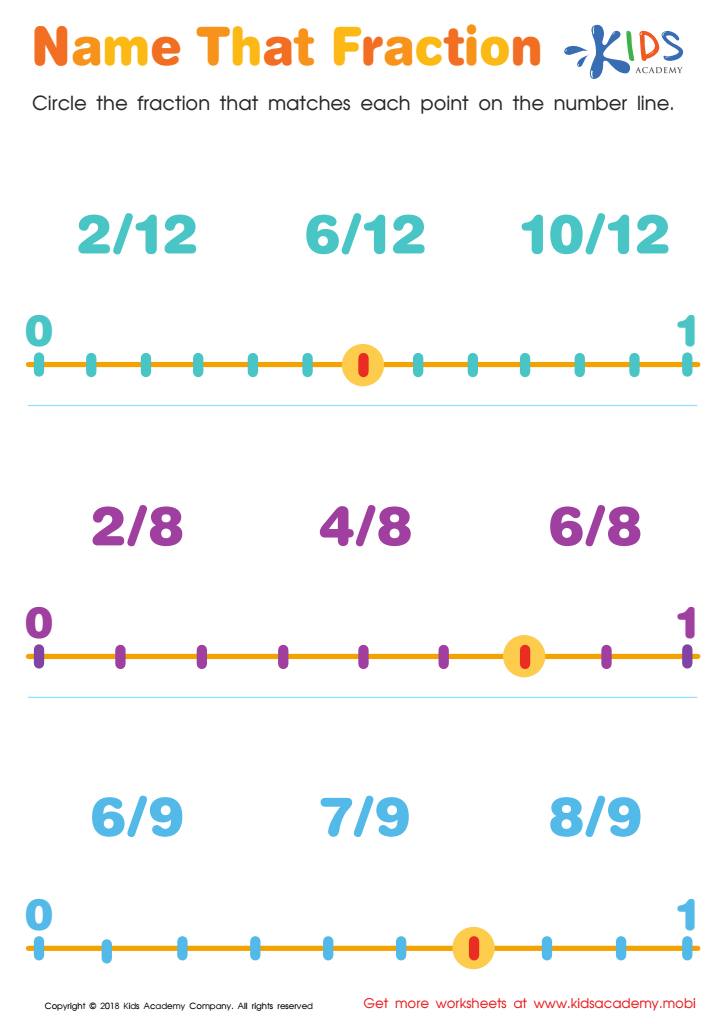

Name That Fraction Worksheet
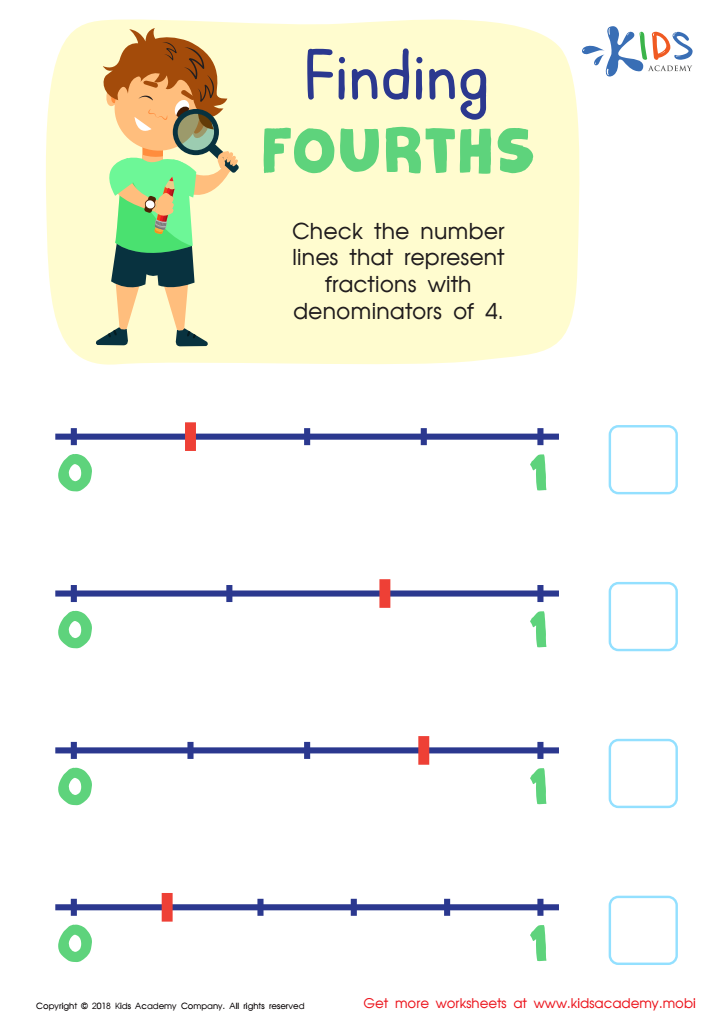

Finding Fourths Worksheet
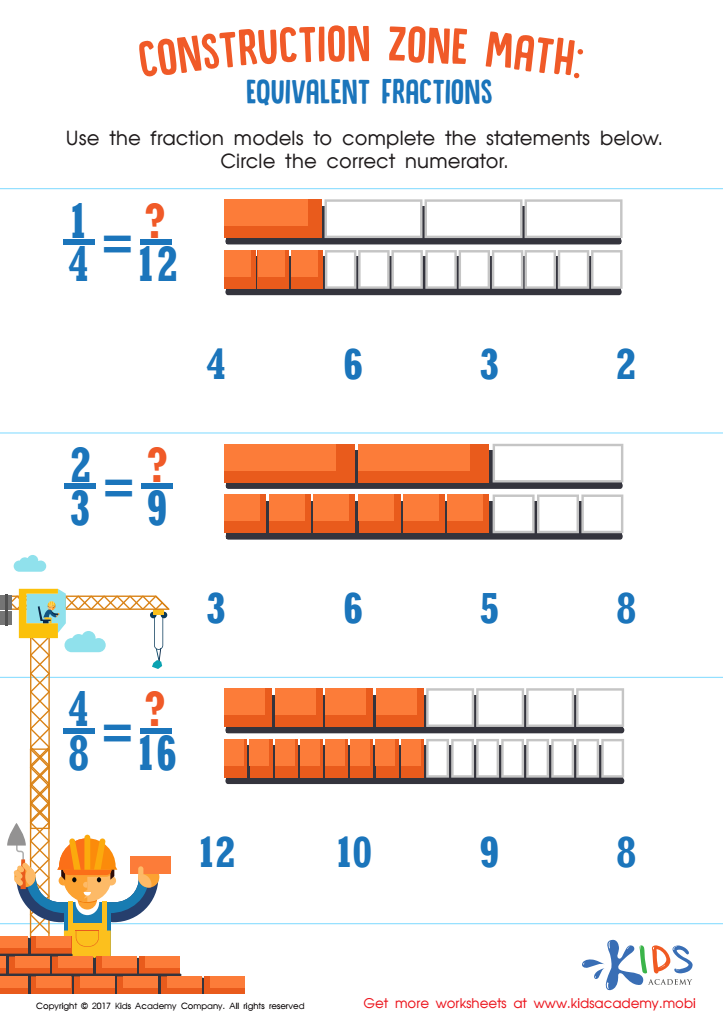

Equivalent Fractions Worksheet
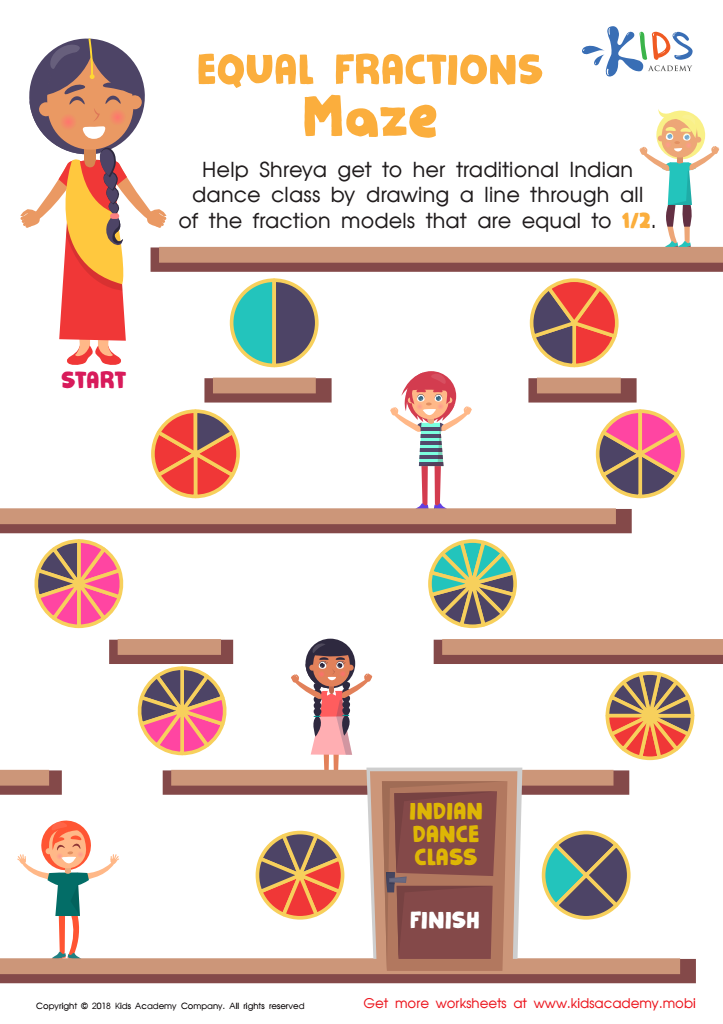

Equal Fractions Maze Worksheet
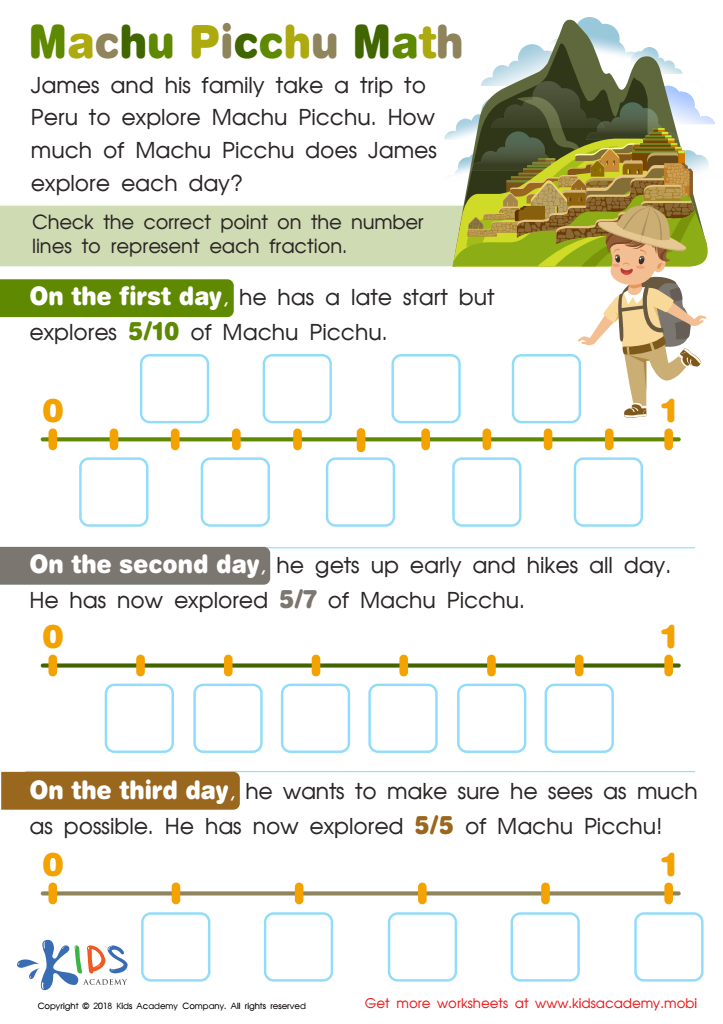

Machu Picchu Math Worksheet
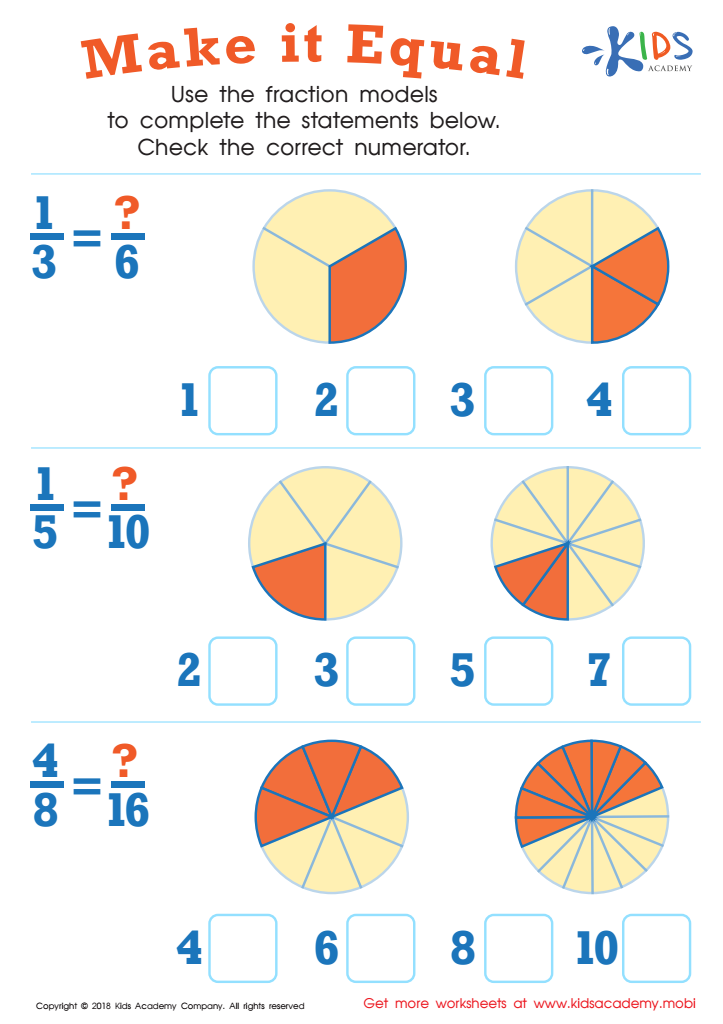

Make It Equal Worksheet
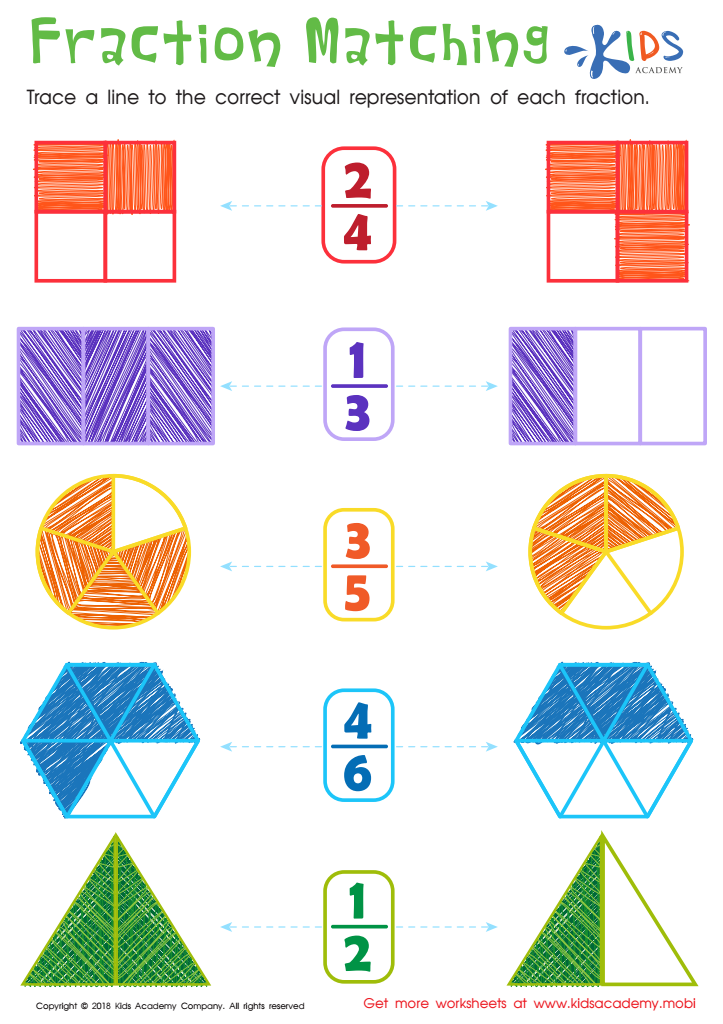

Fraction Matching Worksheet
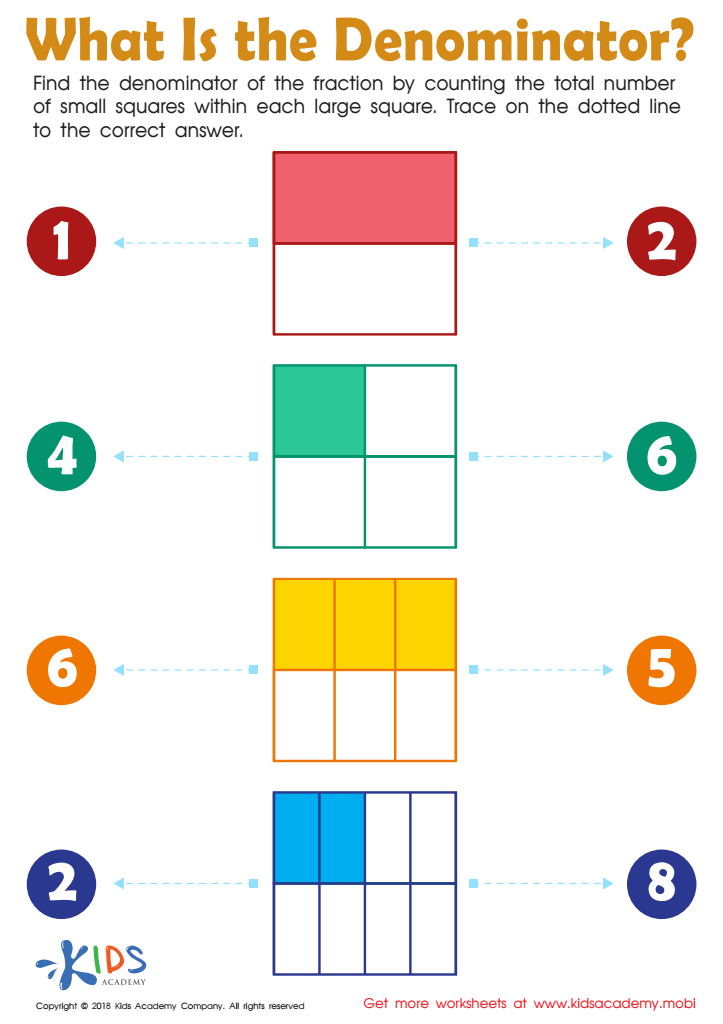

What Is the Denominator? Worksheet
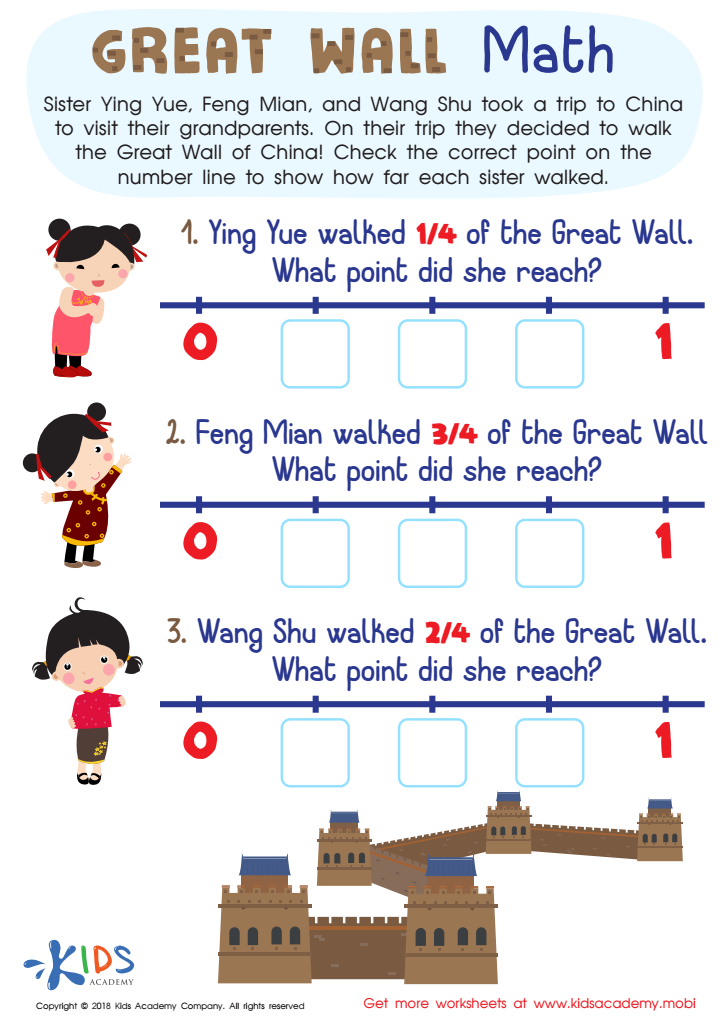

Great Wall Math Worksheet
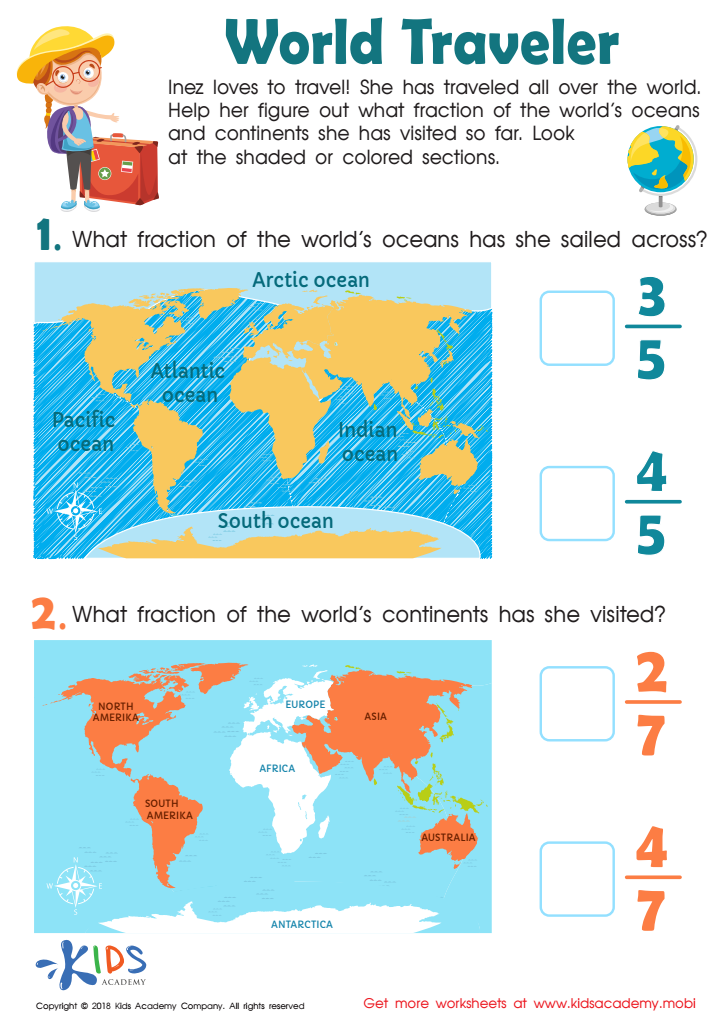

World Traveler Worksheet
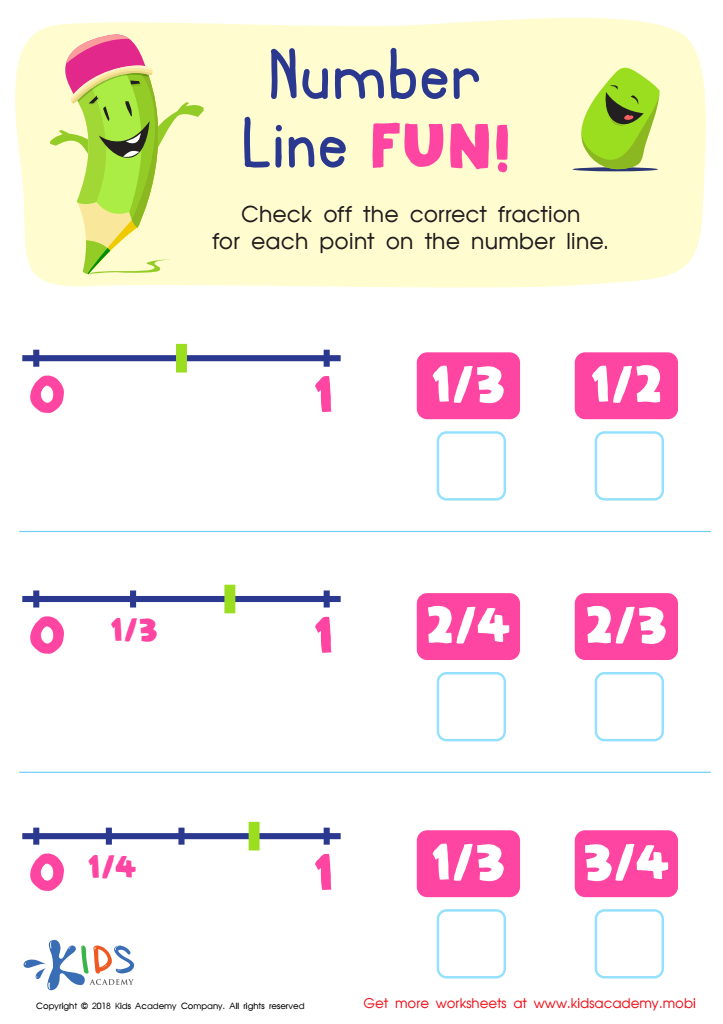

Number Line Fun Worksheet
Fractions are fundamental concepts that serve as a cornerstone for mathematical understanding in children ages 6-9. At this stage, children begin to build their numerical literacy, and fractions introduce them to the idea of parts of a whole, which is crucial for everyday life. Recognizing and understanding fractions helps children grasp ratios, proportions, and basic division, fostering critical thinking skills as they learn to compare, add, and subtract fractions.
For parents and teachers, emphasizing fractions prepares students for more advanced mathematics in later years, including algebra and geometry. Mastery of fractions can boost confidence, as it encourages problem-solving, logical reasoning, and analytical skills. Furthermore, engaging children with real-world applications—such as cooking, measuring, or dividing groups—makes learning more relatable and enjoyable.
Moreover, starting this learning early creates a solid foundation for calculus concepts that they will encounter in school. By focusing on fractions, parents and teachers play a vital role in nurturing a child’s ability to comprehend mathematics, aiding both academic success and a positive attitude toward math as a whole. This early investment in their learning journey is essential for developing lifelong skills essential in both academic contexts and real-world situations.
 Assign to My Students
Assign to My Students





.jpg)













